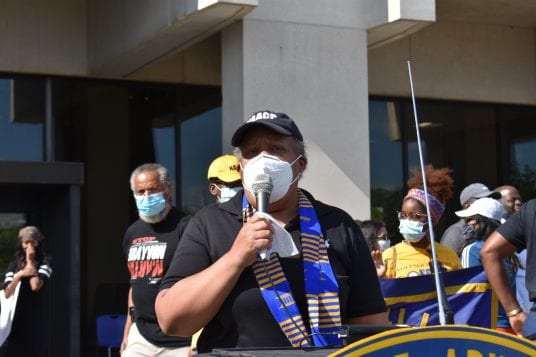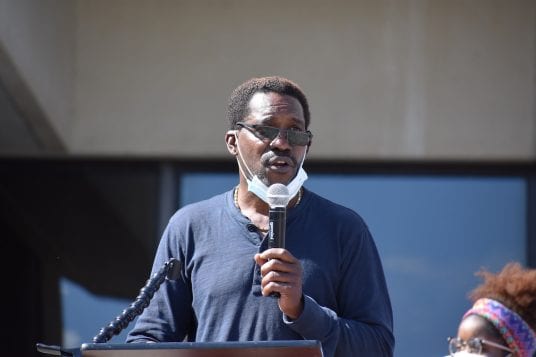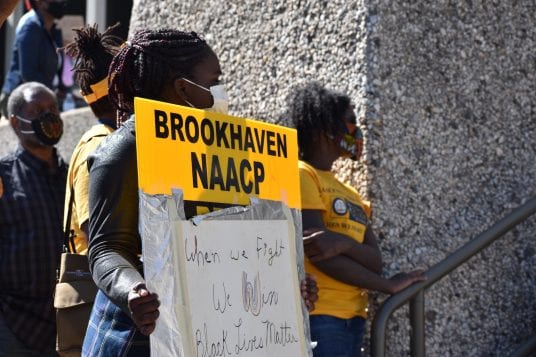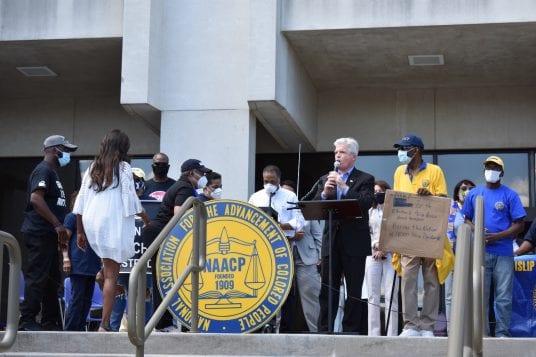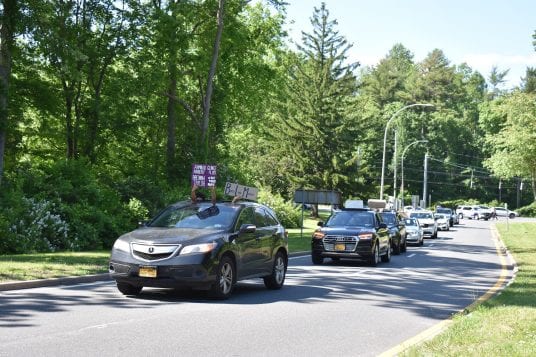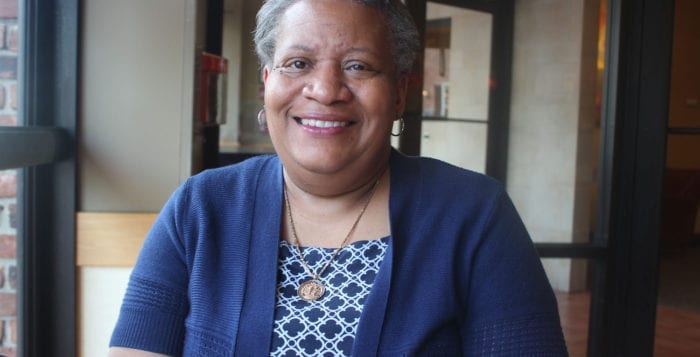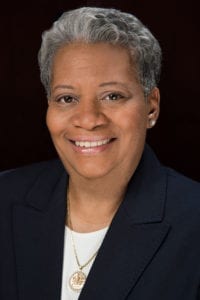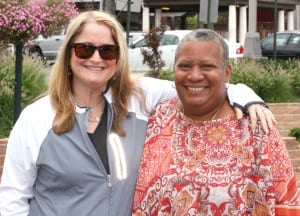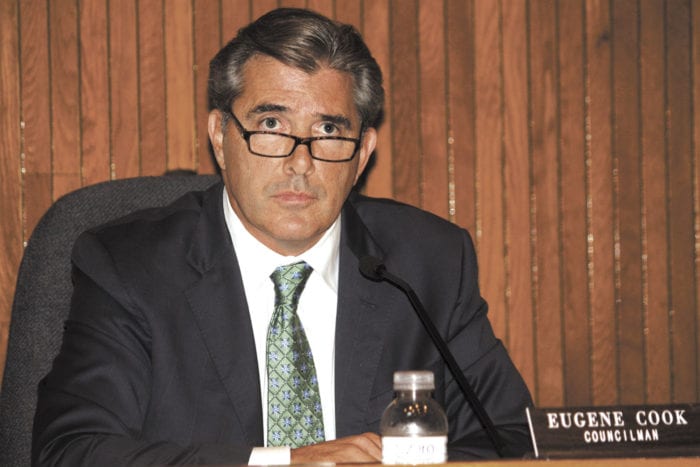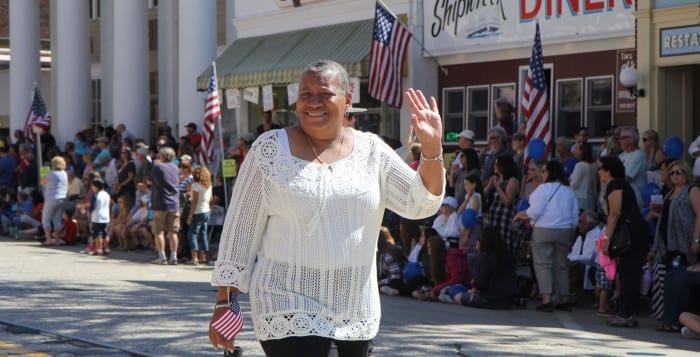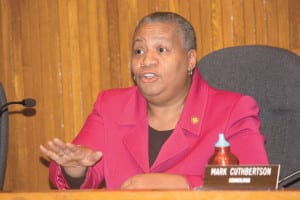By Tara Mae
We are all islanders here, whether by birth or by choice. Individual relationships with the water may vary, but for many it is a core component of cultural identity: a source of relaxation, recreation, sustenance, and survival.
The Maritime Film Festival, presented by Cinema Arts Centre in Huntington in conjunction with Long Island Traditions in Port Washington and The Plaza Cinema & Media Arts Center in Patchogue, explores the flow and ebb of people’s connections to the sea and the lifestyles it provides.
The festival will feature three films that are anchored in an appreciation of welcoming and weathering the elements of island life. Each documentary will have its own screening and be followed by an audience Q&A session with the filmmakers and others involved in the projects. [See schedule below.]
The festival begins with The Bungalows of Rockaway on Tuesday, June 14 at 7:30 p.m. Narrated by Academy Award winner Estelle Parsons, the film chronicles 100 years in the tragicomic tale of New York’s biggest summer bungalow colony.
“The Bungalows of Rockaway illustrates, through the detailed, eloquent, diverse voices of historians, bungalow residents, and Rockawayans and the use of archival images, the long history, meaningful to residents past and present and the city as a whole,” said producer Elizabeth Logan Harris who will participate in the post-screening discussion.
A World Within a World: The Bay Houses of Long Island will be screened on Tuesday, June 21 at 7:30 p.m. This film explores from historical and contemporary perspectives the lives, histories, and experiences of bay house owners in the Town of North Hempstead.
“The bay houses have a rich history going back to the 18th century and are a part of Long Island’s heritage that many, including myself, knew little about. Besides their aesthetic beauty — giving unparalleled access to the beauty of the marshlands on the south shore — they also offer a glimpse into a sub-culture of families who maintain and love the houses for many generations,” co-director Greg Blank said.
Co-director Barbara Weber and folklorist Nancy Solomon, who helped put together the festival, will join Blank to talk about the documentary after the viewing.
The festival concludes with Maiden, on Tuesday, July 12 at 7:30 p.m. The documentary is the story of the first all female crew, assembled by British sailor Tracey Edwards, to compete in the 1989 Whitbread Round the World Race, a 32,000 mile global circumnavigation competition.
“We were just people racing around the world and trying to win. The social impact was not apparent to us until later and it is incredible how the story resonates 30 years later,” crew member Dawn Riley, now Executive Director of Oakcliff Sailing Center, said.
She and Edwards will reunite to answer questions and reflect on their experiences.
While Maiden has previously been shown at Cinema Arts Centre, this is the first time The Bungalows of Rockaway and A World Within a World: The Bay Houses of Long Island are being presented there.
“We are thrilled to have such a great range of films,” said Dylan Skolnick, co-director of the Cinema Arts Center.
Nancy Solomon, a folklorist who specializes in maritime culture and Executive Director of Long Island Traditions, a nonprofit that focuses on recording local architecture, organized the film festival as a way to promote and ideally preserve the ethnography of Long Island.
“Long Island is becoming overdeveloped, especially along its coastlines. So the traditions of boat builders, boatyards, fishermen, baymen, bay houses, are in danger. If we don’t start learning about people carrying out these traditions, we are going to lose them,” Solomon said. “The purpose of this festival is to introduce [audiences] to a very rich heritage of people and places that are part of our cultural identity.”
She pitched the idea to Skolnick, who hopped on board.
“It is a true collaboration,” Skolnick said. “At the Cinema, we try to bring great movies from around the world and bring great stories from the local community. These movies fit perfectly with the sort of stories we want to tell.”
A continuation of a film series that began at Plaza Cinema and Media Arts Center in April, Solomon worked closely with both Plaza Cinema and Cinema Arts Centre to create a celebration of coastal culture through cinematic storytelling.
“I want the festival to help educate people about maritime culture of Long Island and how we can preserve it. The films we selected are all about different places in our region and topics relating to struggles of local people,” she said.
The festival was made possible through grants from the Suffolk County Office of Cultural Affairs, Robert L. Gardiner Foundation, and National Endowment of the Arts.
The Cinema Arts Centre is located at 423 Park Avenue in Huntington. Tickets to the Maritime Film Festival are $17 for the general public and $12 for members of Cinema Arts Centre. For more information about the festival and films, please visit www.cinemaartscentre.org.
Film Schedule:
■ The festival kicks off with a screening of The Bungalows of Rockaway on June 14 at 7:30 p.m. Narrated by Academy-Award winner Estelle Parsons, The Bungalows of Rockaway tells 100 years of the tragicomic story of New York City’s largest summer bungalow colony, that of the Rockaways. With enticing vintage postcards, archival photography, Marx Brothers home movies, hilarious boardwalk tales, personal accounts recounted by bungalow residents and Rockawayans alike, all grounded by historians, the film brings viewers close to the highs and lows of a large, thriving, affordable, urban seaside resort. The film, directed by Jennifer Callahan and co-produced by Jennifer Callahan and Elizabeth Logan Harris, will be followed by a Q&A with Harris.
■ Up next is A World Within a World: Long Island’s Bay Houses on June 21 at 7:30 p.m. A World Within a World explores the lives, history, and experiences of bay house owners in the Town of Hempstead from both a historical and contemporary perspective. Based on fieldwork by folklorist and maritime ethnographer Nancy Solomon of Long Island Traditions, local filmmakers Barbara Weber and Greg Blank capture the essence of how bay house owners have persevered and endured through severe storms and hurricanes as well as eroding marshlands all while preserving traditions that began in the early 19th century. The film profiles Long Island families who have owned bay houses for over 100 years including the Muller, McNeece, Burchianti, Warasila, Jankoski families. The screening will be followed by a Q&A and discussion with directors Greg Blank and Barbara Weber and folklorist Nancy Solomon.
■ The festival closes with a screening of Maiden on July 12 at 7:30 p.m. In 1989, long dismissed and belittled as the only woman crewmember on the ships where she worked, British sailor Tracy Edwards set out to prove herself in the biggest way possible. She assembled the world’s first all-female international crew and entered the Whitbread Round the World Race, a 32,000 mile global circumnavigation competition that, until then, had been the exclusive domain of male seafarers. The screening will feature a Q&A with Maiden Captain Tracy Edwards and sailor Dawn Riley, Director of Oakcliff Sailing School.



